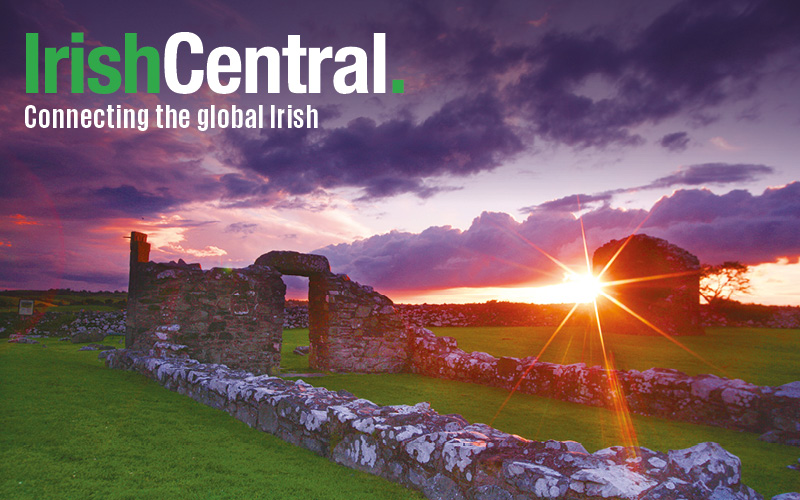Abortion, Brexit, peace in Northern Ireland, the Pope and the All Ireland Football final are all set to dominate news headlines in 2018
1. Abortion
Twenty-five years ago the Irish people voted by a two to one margin to pass the 8th amendment to the Irish Constitution which gave the unborn a constitutional right to life. Now voters will be given a chance on whether the 8th amendment should stay or whether it should be scrapped.
An Oireachtas (congressional) committee voted to recommend that abortion be legalized in the first three months of pregnancy or after if the health of the mother is at risk. Opinion polls suggest that Irish people are prepared to liberalize the constitution but the pro-life movement have pointed out that the ‘No’ side traditionally gains ground in Irish referenda.
Referendum on repealing the 8th Amendment could be held in May or Junehttps://t.co/04zHq3zBwh
— Morning Ireland (@morningireland) December 14, 2017
Expect strong opposition from the Catholic Church, much of rural Ireland and social conservatives. On the other hand young people, the media and Dublin are thought to strongly favor repeal.
2. Brexit
At the 11th hour Ireland and the rest of the EU greenlighted the Brexit negotiations to move on to Stage 2 - thus setting the stage for talks on how Britain and Europe will trade in the future. For months the negotiations had been ensnared in how best to preserve the open border between Northern Ireland and the Republic.
Finally the stalemate was broken: the United Kingdom committed to aligning itself to certain EU standards in areas such as agriculture and energy. Varadkar said the deal is “politically bulletproof” but critics say the statement is legally contradictory.
The next year will determine how Ireland will be able to trade with the crucial UK market and is expected to consume much of the Irish Government’s energy. Earlier this month Varadkar said, “Needless to say from an Irish point of view, we’d like it look as much like the current relationship as possible, but that wouldn’t necessarily be the view of everyone.” Most of the British cabinet could not disagree more and reports have emerged that London will try and negotiate a deal sector by sector.
The British fishing industry, for instance, has long loathed EU rules and will want drastic policy changes after Brexit. Currently over half of the fish caught in British waters are caught by foreign trawlers and the industry wants a return to the 200 nautical mile exclusion zone that countries outside the EU - such as Norway and Iceland - have maintained. Such a policy would allow Britain to prioritize British fishermen over foreign trawlers and Seán O‘Donoghue, CEO of Killybegs Fishermen’s Organisation, told Thomson Reuters that such a policy could mean “game over” for Irish fishermen.
Other sectors, such as Britain’s financial sector, want a deal as close to the status quo as possible. The City of London is particularly keen to retain its so-called “passporting rights” which allow British firms to operate anywhere across the EU.
Brexit chief negotiator Michel Barnier has said, “The legal consequence of Brexit is that the UK financial service providers lose their EU passport.” No trade deal, he added, has ever included financial services, although reportedly the TTIP deal the EU was negotiating with the US contained a chapter on financial services.
Frankfurt, Paris and Dublin are keen to see bankers relocate but thus far the exodus of jobs predicted by some commentators has yet to materialise. Firms are biding the time to see what shape the deal will look like and whilst some are moving jobs to the EU, so far the numbers are minimal. Goldman Sachs, for instance, recently announced it would choose Dublin as its post-Brexit, creating 20 new jobs in the Irish capital.
3. Northern Ireland
Northern Ireland’s Assembly remains in hibernation. Legislators have spent nearly a year being paid a full salary for doing very little of what they were actually elected to do: namely legislate.
The Assembly collapsed because of DUP mismanagement over a renewable heating scandal and then First Minister Arlene Foster’s refusal to stand aside for an inquiry. Now Sinn Féin say won’t re-enter the Executive until an Irish Language Act and gay marriage are introduced - both things the DUP strongly opposes.
Direct rule in London looms ever closer.
4. The Pope (and the Queen) will visit Ireland
The last time a Pope visited Ireland it was 1979 and contraception, gay sex and divorce were all illegal. Ireland had one of the highest rates of weekly Mass going in the world and 2.5 million people turned out to see him.
When Pope Francis visits in August he’ll arrive in a much changed, if still nominally Catholic Ireland. The crowds will still be thrilled to see him but without a doubt they’ll be much smaller.
Reportedly he’ll pop over the border to meet Queen Elizabeth - something Pope John Paul wasn’t able to do because of the Troubles.
Since peace returned to the province the British Monarch has visited Northern Ireland almost annually - much to the delight of unionists who adore her. As Supreme Governor of the Church of England, her meeting the head of the Roman Catholic Church on Irish soil will be a significant moment in a country where divisions between the Catholic and Protestant communities are still very real.
At 91 could this be her last visit to Ireland? It’s possible but Her Majesty remains in excellent health, and although most people of her age are dead or retired, she has always made clear that she will never abdicate.
5. All Ireland Football Final
Will Mayo win? Well that depends… has the curse been lifted?




Comments